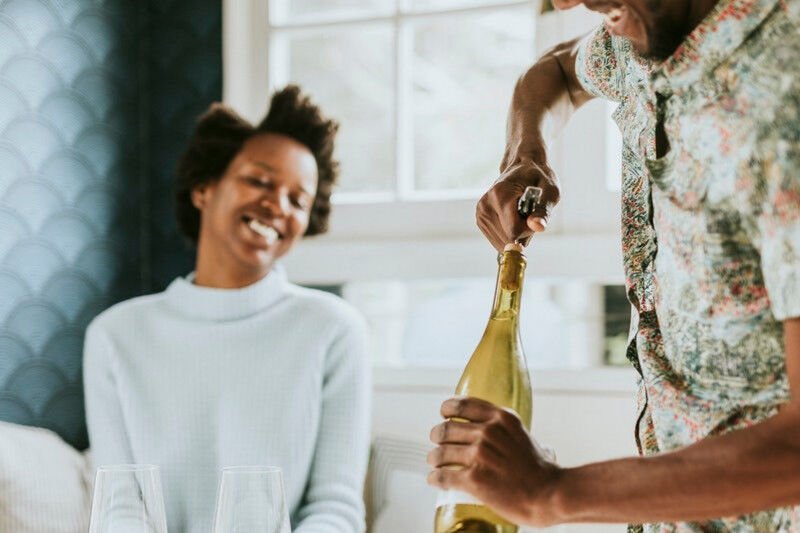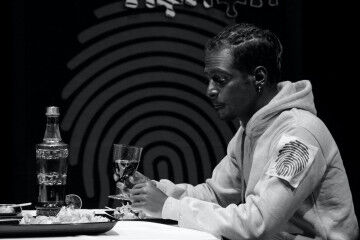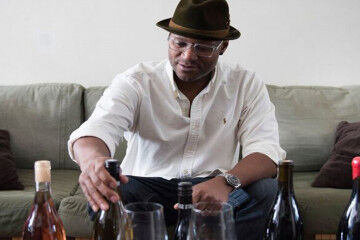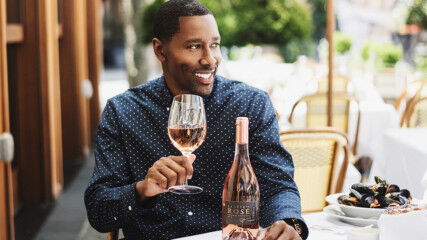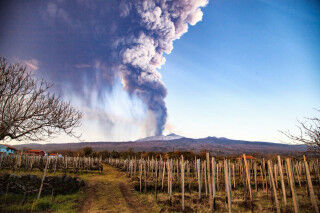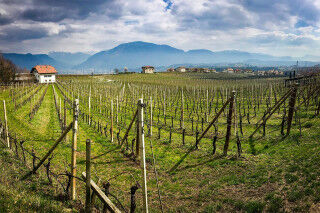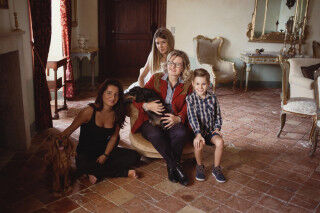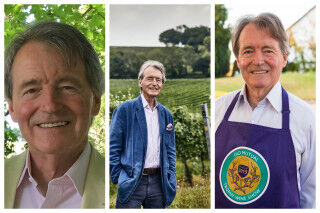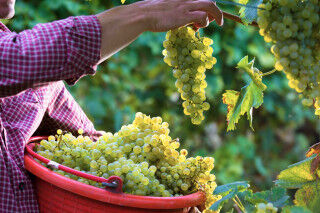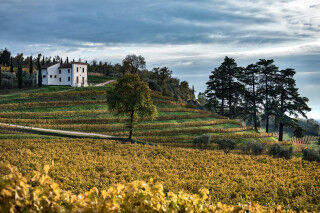DIFFERENT COLORS IN THE FOOD AND WINE SCENE
Almost a year ago George Floyd died in Minneapolis, the 46 year-old African-American who died as a result of a violent intervention by Officer Derek Chauvin, a policeman who caused Floyd’s death by asphyxiation when kneeling on his neck for several minutes. The video of Floyd’s arrest quickly became viral, and triggered global protests and demonstrations against police abuse motivated by racial discrimination.
Today, hearings to highlight the racial bias prevalent in the Minneapolis Police Department are underway. Floyd’s brutal death however, goes far beyond a simple wrongful death settlement in favor of Floyd’s surviving family members, or a guilty verdict to incriminate a racist police officer. The explosion of the Black Lives Matter movement, which gained true steam on May 25th, 2020 and hasn’t looked back since, can show us that the protest and determination to change systemic racism is a sentiment felt across the board, by many both in the United States and globally. Fascinatingly, this protest movement has begun to tie in different fields that are even seemingly far removed from the original arena of judicial bias.
One of these far-reaching sectors is Wine, which has become a classic litmus tests of systemic racism in a country like the United States. The country began questioning the lack of black representation in the national wine sector, and how those already present are able to emerge and make themselves known. The current situation appeared to be more shadowy than sunshiney, with inclusion efforts still with quite a ways to go. The encouraging news however, is that a slow, steady growth movement is underway in Food & Wine sector, and the ranks of black entrepreneurs and workers is consistently gaining ground.
DOES THE WINE INDUSTRY HAVE A PROBLEM WITH RACE?
American journalist and wine writer Julia Coney, went on to Instagram Live to advocate further for diversity and inclusion in the U.S. wine industry. Coney is also the founder of Black Wine Professionals, a database tool intended to increase diversity in the wine world, as well as the author of critical research essays on contemporary racism within the wine industry.
Coney’s message did not fall on deaf ears. Following her call to action, many wine training institutions like The Court of Master Sommeliers, The Institute of Master of Wine and Wset took clear stances against racism, and revised their internal policies to be more inclusive.
During her speech at the last edition of the Wine2Wine conference, held online this year as opposed to its traditional stage in Verona’s wine fair, Coney underlined wine’s natural ally against discrimination. Because the wine industry generally bases its strength on diversity and inclusion, the world of wine can be an important ally in the global challenge to racial bias. Coney also encouraged the wine industry as a whole to support new equality causes and movements as they also represent excellent, intelligent gateways to an entirely new market base.
Coney cited recurring prejudices about black consumers, unearthed during her research. Some examples include that sweet wines are the only wines that appeal to the black consumers, or that black clients are priced out of more expensive bottles or are even unable to enjoy and appreciate bottles with a high price point. Coney noted that black wine professionals are often not identified as such, and mistaken for service personnel.
COMMON MISCONCEPTIONS IN THE WINE WORLD
A commonly-held belief is that because of the lack of prominent black industry professionals (save a few notable exceptions), black consumers sense that the wine world excludes them.
As time progresses, more and more examples shaking up this stagnant belief are cropping up. Music mega-star Snoop Dog makes a good case in point, ushering in a red wine “Snoop Cali Red,” created in collaboration with Australian winery 19 Crimes, a wine estate proving to be well ahead of the curve on racial issues.
The 2020 Netflix movie Uncorked was inspired by the life and experience of DLLynn Proctor, named Wine&Spirits Magazine Best Sommelier in America in 2008. Today, Proctor is the director of Fantesca winery in Napa Valley after a 10-year ambassadorship for wine giant Penfolds. Uncorked follows Proctor’s steps and life as he undergoes his path as an African-American intent on becoming a master sommelier.
André Hueston Mack, head sommelier of the Per Se restaurant in New York, has also come a long way in his path to wine excellence, albeit with some speed bumps en route. Today, a flourishing wine entrepreneur with his personal label Maison Noir, Mack is also responsible for several Brooklyn-based stores under the &Sons Hospitality Group.
In an interview with New York Times Wine journalist Eric Asimov, Mack recalled instances of being undermined inadvertently by guests in Per Se who asked to speak to the “real” sommelier, or an episode in a Colorado retail outlet, where he was followed incessantly by a store employee who was afraid Mack would steal merchandise.
COMPOUNDING THE PROBLEM WITH THE INCLUSION OF GENDER
If the passion for wine devolves into an exhausting effort to gain recognition for the work one accomplishes sounds like a tall order, imagine tossing gender into the mix. Then our situation gets even more complicated.
The ever-increasing importance of social media has made it easier to become visible, with more and more Instagram accounts and Clubhouse rooms addressing the topic of female invisibility in the wine world, as well as an overall discussion about racial discrimination still en vigour.
One voice belongs to Shakera Jones, a tech professional by day, and wine-loving blogger by night. Jones’ blog, Black Girls Dine Too, is dedicated to wine and restaurants.
The Belize-born blogger quite clearly states her intent on her site. "There is a clear void in the culinary world when it comes to women of color. From chefs, to sommeliers, to restaurateurs, to managers, to diners. The goal of this page is to fill that gap, and remind EVERYONE that BlackGirlsDineToo!"
In the world of black influencers, Tahiirah Habibi's name is an institution. Founder of The Hue Society community, her source of inspiration came from a verse in a Jay-Z song speaking about black billionaires. Habibi’s objective is just this: to make wine into an important business channel, particularly for wine-interested African-American groups.
Indeed, Habibi is also the founder of The Black Wine Experience, the event organized by The Hue Society in New Orleans. The event brings together dozens of entrepreneurs, stakeholders and producers from within the Black community.
There are also several women on the board of Wine Unify, a training center based in Napa, California. The mission statement reads, "working in the wine industry can open many doors both financially and intellectually. While we have come a long way over the years to promote a more ethnically and racially diverse profession, there is much work to be done in terms of welcoming, growing, and amplifying the voices of underrepresented minorities."
The above are all realities born on the web, but that also have an offline existence, thanks to tastings and the desire to establish scholarships to encourage diversity in the wine world. One example is The Roots Fund, an organization aiming to bring under-represented workers increased visibility within the wine industry. The organization in reality addresses the entire Bipoc community, or the black, indigenous and people of color community.”
The Assemblage Symposium instead aims for a focus on diversity. The annual conference is typically attended by women working in the wine world. The symposium’s goals include the education, promotion and empowerment of women, Bipocs, and members of the LGBTQQIA community (lesbian, gay, bisexual, transgender, queer, questioning (one's sexual or gender identity), intersex, and asexual/aromantic/agender).
Last but not least, we find BAME (Black, Asian & Minority Ethnic),. This is the online portal tool established by one of the wine world’s most influential wine journalists, Jancis Robinson. A highly respected English Master of Wine, Robinson partnered with Mags Janjo of MJ Wine Cellars in order to promote talented members of the wine community that had hitherto-fore gone relatively unnoticed by the wine industry leaders.
